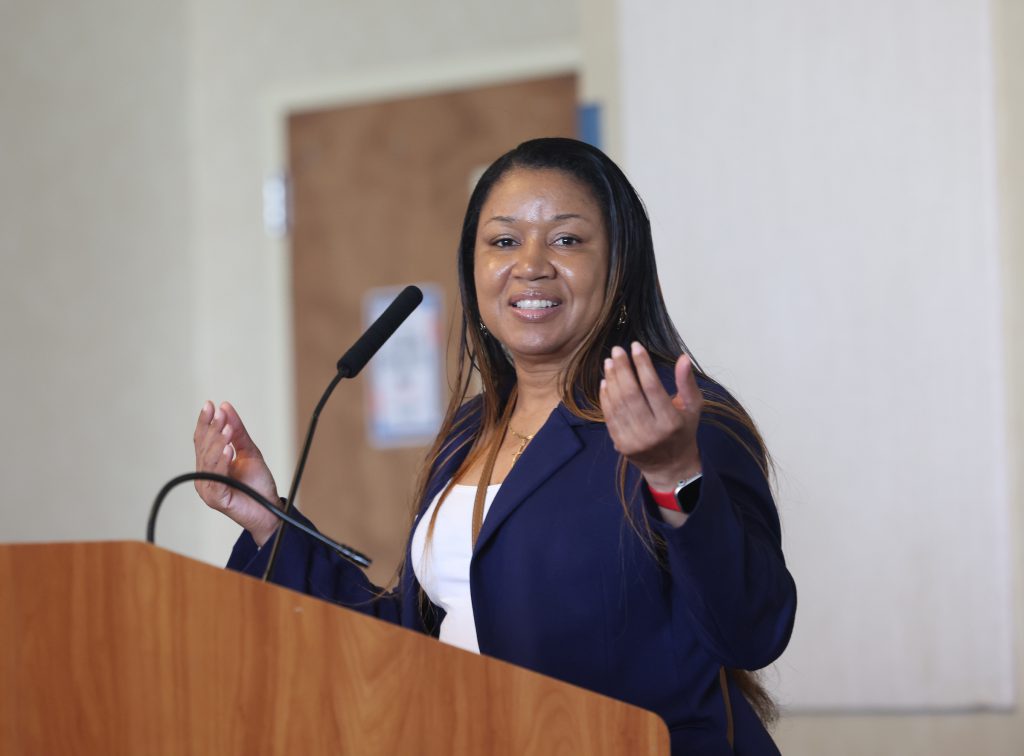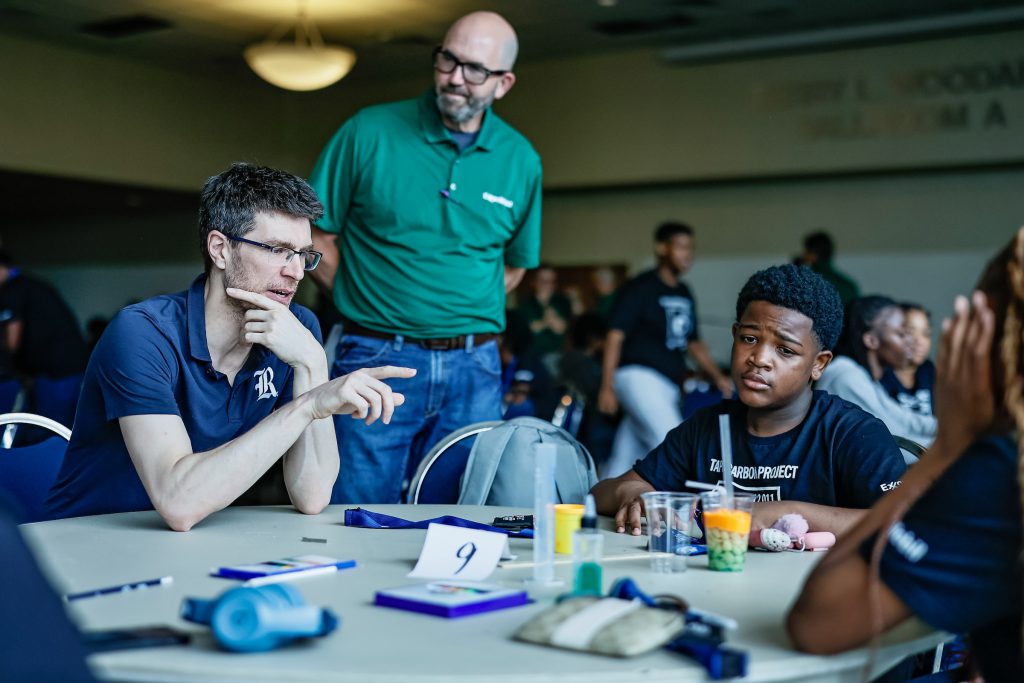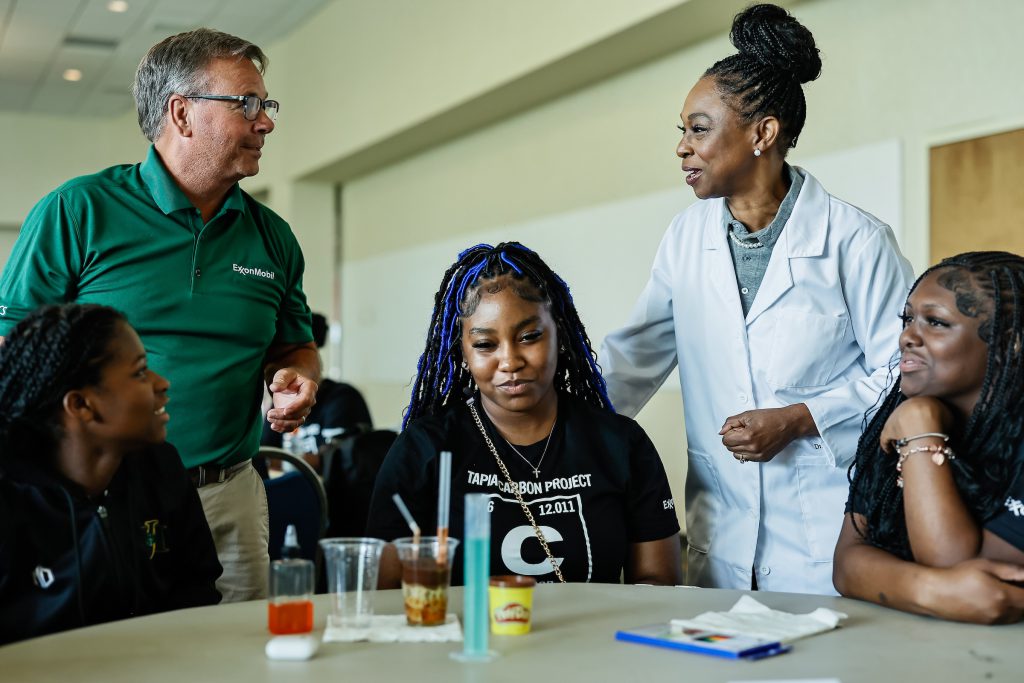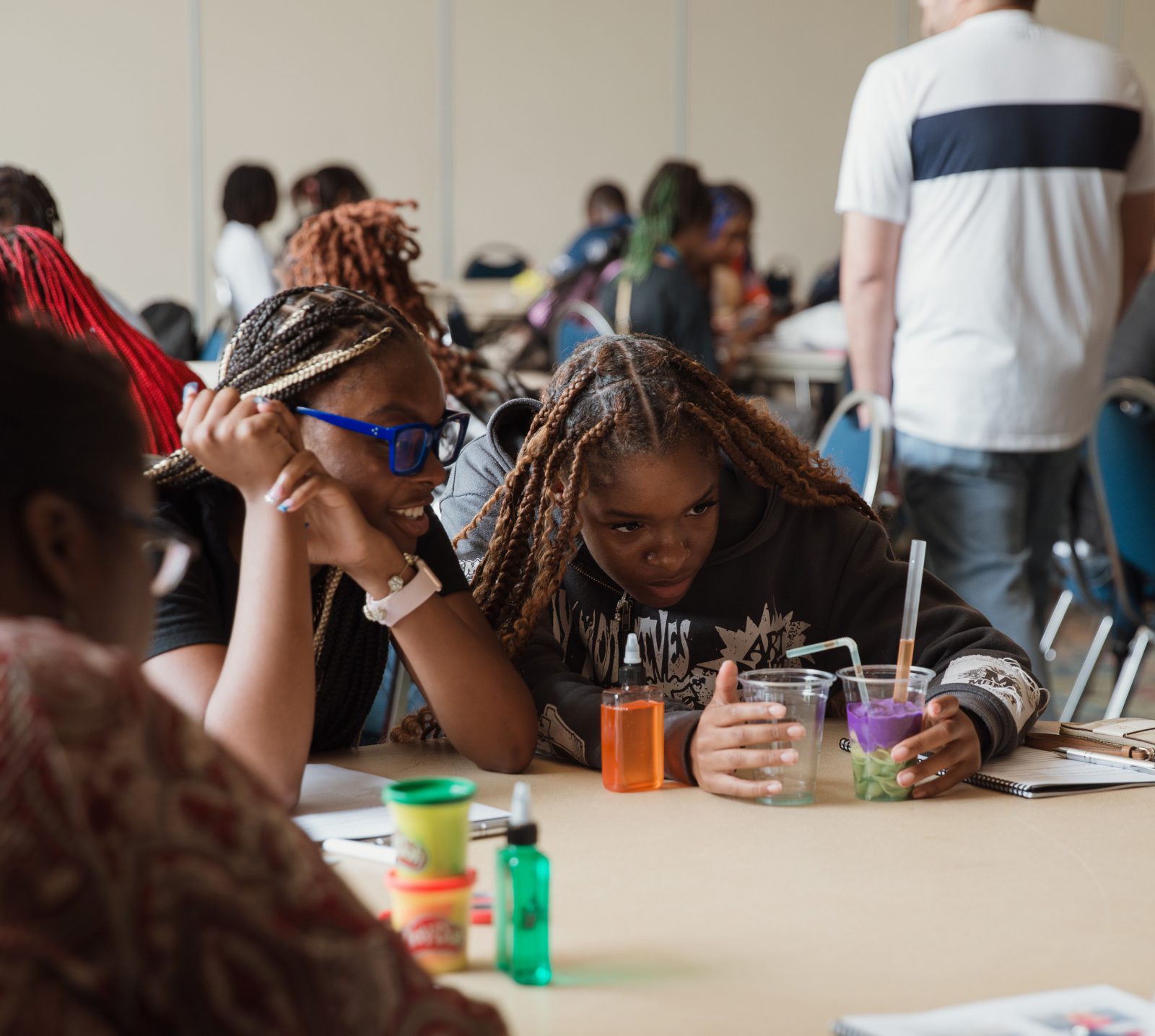By Anthony Howard
(JACKSON, Miss.) – For the second consecutive year, Jackson State University partnered with Rice University and ExxonMobil to bring the award-winning Tapia STEM camp to nearly 200 Mississippi high school students.
The 2025 Carbon STEM Summer Camp, held from June 2 – 6 on JSU’s campus, is a powerful collaboration aimed at encouraging students to pursue careers in science, technology, engineering and mathematics (STEM).
The week-long camp welcomed entering grades 9–12 to participate in hands-on STEM activities centered on carbon dioxide (CO₂) and its critical role in a lower-carbon future.
Through a partnership with Rice University’s Tapia Center for Excellence and Equity in Education, ExxonMobil Pipeline Company, and JSU’s Upward Bound program, students gained valuable experience in environmental science, public speaking, and collaboration — all while building skills that position them for future careers in STEM fields.

“Inspiring young people to pursue STEM careers is personal to me,” said Denise Jones Gregory, Ph.D., interim president of Jackson State University. “As a scientist and chemistry professor, I’ve seen how opportunities in science and technology can change a student’s path and impact generations. We’re proud to host this camp in partnership with ExxonMobil and Rice University, and we remain committed to building strong STEM pipelines that begin in Mississippi and reach far beyond.”
Throughout the camp, students learned about the science and engineering behind carbon capture and storage (CCS). They explored how CO₂ is captured and transported to geologically secure underground reservoirs for permanent storage using simple materials like Play-Doh, pasta, beans, water, and vegetable oil. Students built model reservoirs that mimic porous and impermeable rock layers to help them visualize how carbon can be safely stored underground.

“At Jackson State University, we believe early exposure to real-world science and innovation can ignite a lifelong passion for STEM,” said Almesha L. Campbell, Ph.D., vice president for research and economic development and lead for the ExxonMobil partnership at JSU. “This camp exemplifies what’s possible when education, industry and community come together with purpose. Through our partnership with ExxonMobil and Rice University, we are helping students explore scientific solutions to challenges that affect their communities directly.”
The curriculum, developed by a team led by Paul Hand, Ph.D., interim executive director of the Tapia Center, combines hands-on learning with real-world applications. It also emphasizes communication and collaboration.

Campers engaged in group projects, sharpened their public speaking and presented final projects at the end of the week that demonstrated their understanding of CO₂ and its environmental impact.
“This camp is about more than just science lessons,” said Hand. “It gives students the chance to think critically, work collaboratively, and tackle real-world challenges in a hands-on way. We’re proud to bring this kind of experience to these bright young minds.”
The Carbon STEM summer camp is part of a broader mission to foster STEM equity and excellence in historically underserved communities. Named after acclaimed mathematician and educator Dr. Richard Tapia, the Tapia STEM Camps aim to empower students to succeed in STEM fields by blending rigorous academics with encouragement, mentorship and community building.

Students also benefited from direct interaction with STEM professionals. Throughout the week, ExxonMobil Pipeline Company employees volunteered their time to engage with campers, shared their career journeys and provided mentorship.
“This camp gives students meaningful exposure to how STEM concepts apply in real-world settings,” said Brian Carlin, CO₂ Operations Manager, ExxonMobil Pipeline Company. “We’re proud to partner with the Tapia Center and Jackson State University to support programs that help students build skills, grow their confidence, and explore the broad range of opportunities a STEM education can provide.”
###







